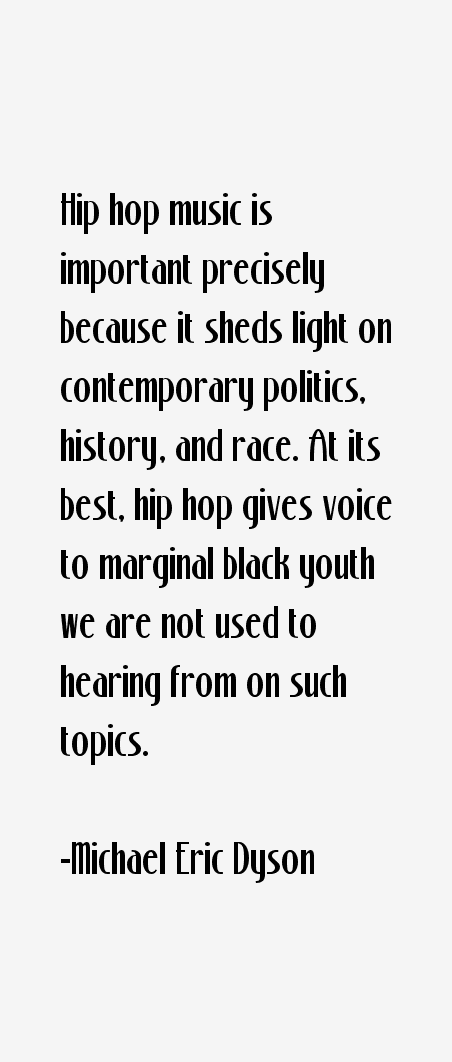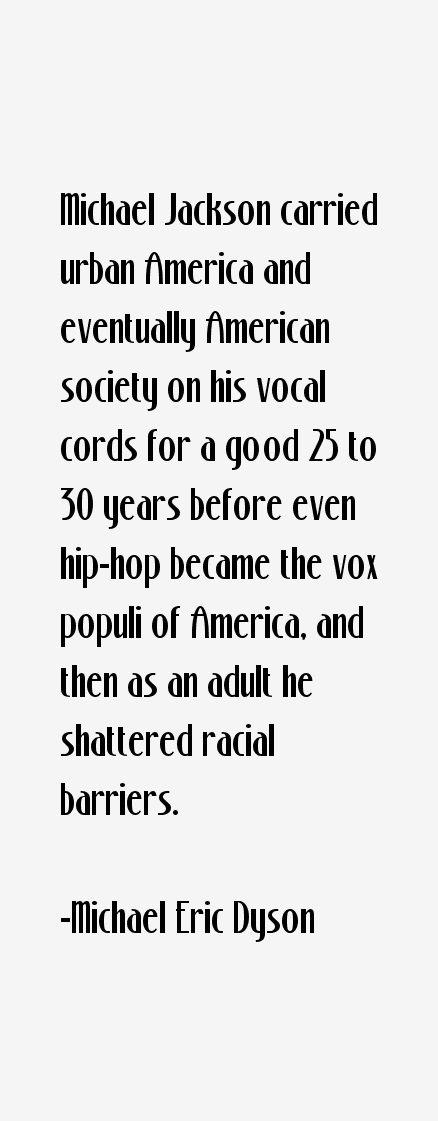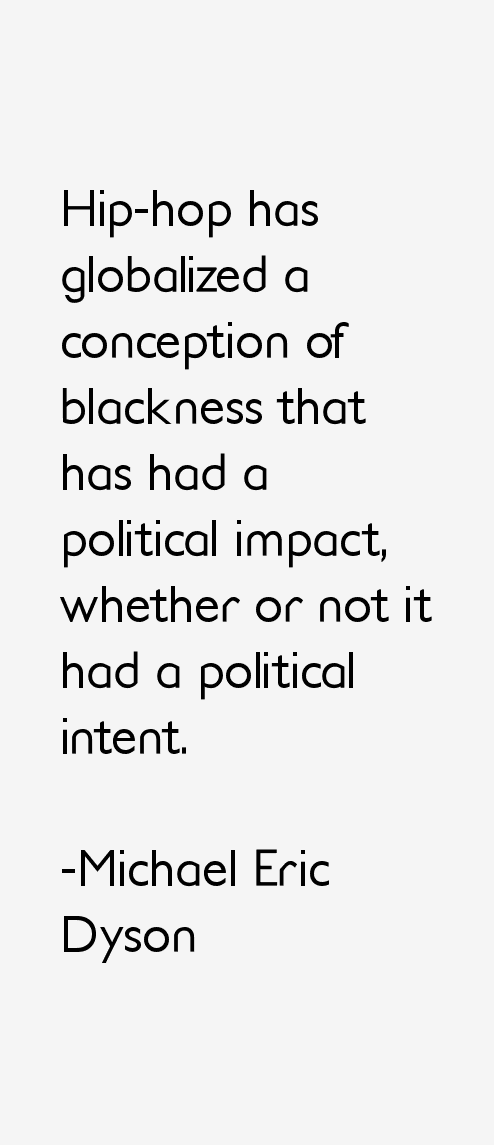Michael Eric Dyson Quotes & Sayings (Page 2)
Michael Eric Dyson quotes and sayings page 2 (67 year old author). Here's quote # 11 through 20 out of the 62 we have for him.
“There's no question that O.J. Simpson had been a substitute white man in America. He had gained honorary white status. He was not viewed by many white Americans as black. He was not seen as the African American athlete who was rebellious: Jim Brown, Muhammad Ali, Hank Aaron... He was accepted in golf clubs that were very tony.”
“Hip hop scholarship must strive to reflect the form it interrogates, offering the same features as the best hip hop: seductive rhythms, throbbing beats, intelligent lyrics, soulful samples, and a sense of joy that is never exhausted in one sitting.”
“New Orleans invented the brown paper bag party - usually at a gathering in a home - where anyone darker than the bag attached to the door was denied entrance. The brown bag criterion survives as a metaphor for how the black cultural elite quite literally establishes caste along color lines within black life.”
“I think that Michael Jackson, just as an entertainer, as a figure who embodies the contradictions of black identity and the possibilities of R&B music in the '70s and '80s, will continue to be one of the most recognized and formidable human beings that we've ever produced in our tradition.”
“I think public intellectuals have a responsibility - to be self-critical on the one hand, to do serious, nuanced work rigorously executed; but to also be able to get off those perches and out of those ivory towers and speak to the real people who make decisions; to speak truth to power and the powerless with lucidity and eloquence.”

“Hip hop music is important precisely because it sheds light on contemporary politics, history, and race. At its best, hip hop gives voice to marginal black youth we are not used to hearing from on such topics.”
“I didn't get to college until my 20s, because I was a young father on welfare and had to take all kind of jobs to support my young son. There's what frames my view on the topics I discuss on my shows, and the average person relates to that. No matter how many degrees I have now, I lived that life, and that comes through to the people watching.”

“Michael Jackson carried urban America and eventually American society on his vocal cords for a good 25 to 30 years before even hip-hop became the vox populi of America, and then as an adult he shattered racial barriers.”
“When white supremacy becomes institutional, it begins to harm the very people who are not simply outside of it because of their race, it begins to harm the folk who look like the folk who want to be in charge. Martin Luther King, Jr., understood this, Malcolm X understood this, James Baldwin really understood this.”

“Hip-hop has globalized a conception of blackness that has had a political impact, whether or not it had a political intent.”
Michael Eric Dyson Quotes Rating
No Ratings Yet
Leave A Comment
























